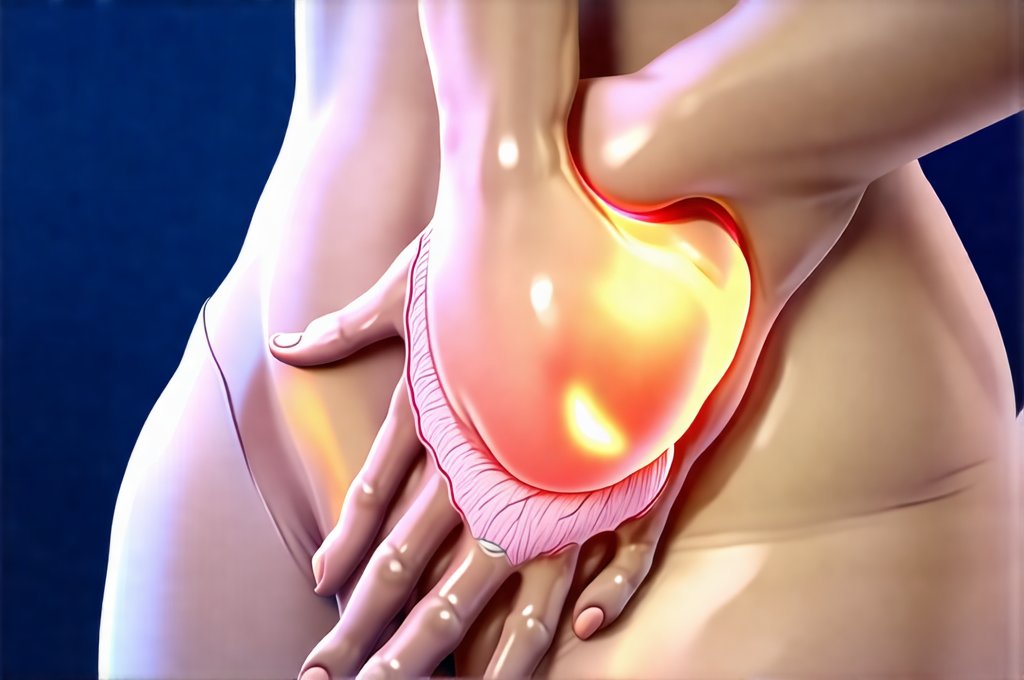The relentless cycle of cystitis – urinary tract infection (UTI) – can be profoundly disruptive, but for many sufferers, it’s not just the daytime symptoms that are debilitating. It’s the agonizing flare-ups experienced during the night that feel disproportionately worse, robbing them of much-needed rest and leaving them feeling utterly exhausted. This nocturnal intensification isn’t simply a matter of imagination; there are several physiological reasons why cystitis flares appear to amplify when we sleep, leading to a truly distressing experience. Understanding these factors is crucial for developing effective coping strategies and communicating concerns effectively with healthcare professionals.
The heightened discomfort experienced at night stems from a complex interplay between the body’s natural processes during sleep and the symptoms of cystitis itself. During the day, distractions – work, activities, social interactions – can partially mask or divert attention from bladder irritation. However, as we lie down to rest, these distractions diminish, allowing us to become acutely aware of bodily sensations. This increased focus, coupled with changes in fluid distribution and hormonal levels during sleep, creates an environment where cystitis symptoms feel more pronounced and overwhelming. Furthermore, the body’s natural pain modulation system tends to be less active during sleep, meaning that any discomfort is less effectively suppressed, leading to a heightened perception of pain and urgency.
The Physiology of Nighttime Flare-Ups
The human body undergoes significant shifts in function as we transition from wakefulness to sleep. One key change relates to fluid balance. During the day, when upright, gravity helps to distribute fluids throughout the body. However, when lying down, fluids redistribute, leading to increased blood flow to the pelvic region and a greater volume of urine collecting in the bladder. This larger bladder volume naturally increases pressure on the bladder wall, exacerbating the sensation of urgency and discomfort for someone experiencing cystitis. Imagine filling a balloon – as it gets fuller, it stretches more, and that’s similar to what happens with the bladder.
Another contributing factor is hormonal fluctuation. Melatonin, the sleep hormone, plays a role in immune function, but its impact on UTI symptoms isn’t fully understood. Cortisol levels, which have anti-inflammatory properties, are typically lower during sleep. This reduction in cortisol can potentially diminish the body’s natural ability to manage inflammation within the urinary tract, making symptoms feel more intense. It is also worth noting that the immune system itself operates differently at night, focusing on repair and restoration rather than active defense against infection; this shift may allow bacterial activity – if present – to become more noticeable.
Furthermore, the parasympathetic nervous system becomes dominant during sleep, responsible for ‘rest and digest’ functions. While beneficial for overall health, it can also increase bladder contractions, potentially triggering or intensifying the urge to urinate. This is particularly troublesome for individuals with overactive bladders or interstitial cystitis/bladder pain syndrome (IC/BPS), where even mild stimulation can lead to significant discomfort.
Why Urgency Feels More Intense at Night
The sensation of urgency – that overwhelming need to rush to the bathroom – is a hallmark symptom of cystitis and often feels drastically more intense at night. This isn’t merely psychological; it’s rooted in how our nervous system interprets signals from the bladder. During sleep, the brain filters out many sensory inputs to prioritize rest. However, strong or persistent signals, such as those from a full or irritated bladder, are less likely to be suppressed and can even become amplified. This means that the signal for urgency reaches conscious awareness more readily, feeling more demanding and pressing.
The positioning of the body while sleeping also plays a role. Lying down allows gravity to exert less resistance against the flow of urine from the bladder towards the urethra. This can trigger or exacerbate feelings of pressure and urgency even with relatively small amounts of urine in the bladder. Think of it like a slightly tilted pipe – as you tilt it, even a little water will start to flow more easily. The increased pelvic blood flow mentioned earlier also contributes to this heightened sensitivity.
Finally, sleep itself can disrupt our normal perception of pain thresholds. As we fall asleep and cycle through different stages of sleep, the brain’s ability to modulate pain signals diminishes. This means that even mild discomfort can feel sharper and more pronounced when you’re trying to sleep, further intensifying the feeling of urgency. It is also important to understand why uti symptoms are often worse at night.
The Role of Anxiety and Sleep Disruption
Anxiety is a common companion to chronic cystitis, and it often creates a vicious cycle with nighttime flare-ups. Worrying about potential leaks, having to get up multiple times during the night, or simply fearing the discomfort can heighten anxiety levels, which in turn exacerbate bladder symptoms. The brain interprets anxiety as stress, triggering the release of hormones like cortisol that can further irritate the urinary tract and increase urgency. This is why many individuals find that stress management techniques – such as deep breathing exercises or meditation – can help to alleviate their symptoms.
Sleep disruption itself also contributes to symptom intensification. When sleep is fragmented by frequent bathroom trips and discomfort, it prevents the body from entering restorative stages of sleep. Lack of adequate sleep weakens the immune system, making you more vulnerable to infection and inflammation, and increases sensitivity to pain. This creates a feedback loop where cystitis disrupts sleep, and disrupted sleep worsens cystitis symptoms. It’s essential to prioritize good sleep hygiene – establishing a regular bedtime routine, creating a relaxing sleep environment, and avoiding caffeine or alcohol before bed – to help break this cycle. For some women, understanding why burning only occurs at night can also be helpful.
Managing Nighttime Cystitis Flares
Dealing with nighttime cystitis flares requires a multifaceted approach that addresses both the physical and psychological aspects of the condition. One crucial step is hydration management; while it seems counterintuitive, restricting fluids entirely can actually concentrate urine, making symptoms worse. Instead, aim for consistent fluid intake throughout the day, but reduce consumption in the hours leading up to bedtime. Avoiding caffeine, alcohol, and carbonated beverages before bed is also essential, as these substances can irritate the bladder.
Another helpful strategy is pelvic floor muscle exercises (Kegels). Strengthening these muscles can improve bladder control and reduce urgency. However, it’s important to perform them correctly; overdoing Kegels or performing them incorrectly can actually worsen symptoms. Consulting with a physiotherapist specializing in pelvic health is highly recommended. Finally, addressing anxiety and stress through relaxation techniques like mindfulness meditation, yoga, or progressive muscle relaxation can significantly improve nighttime comfort. If flares are severely impacting your quality of life, discussing options for medical intervention – such as medication or further diagnostic testing – with your healthcare provider is crucial. Understanding why cystitis feels worse at night can empower you to manage the condition effectively. Additionally, consider if uti pain worsens after sitting.





















